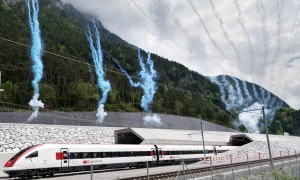🕑 Reading time: 1 minute
The construction industry makes a profit or loss based on the visibility of the works performed on the job site. In this sense, one should have the ability to get a clear and complete view of the progress of the work at site against the project plan. This is achieved by keeping the team connected and involved for better working and successful project delivery.
Connections are strengthened between the employees and workers by proper and flawless communication system. Effective communication between the team members helps one take ownership of their tasks, and hence improves individual performance.
Good communication on the construction site improves better performance of activities in the project schedule. It also helps to improve the working relationships between the contractors and the subcontractors.
This article lists out the reasons for communication failure on construction sites and the methods to implement a good communication mechanism among the employees. It must be noted that the tools listed below cannot be implemented overnight. The best tool must be selected based on the type of activities happening in the construction site to ensure better control over the project. The communication tools and planning required for a small project and a complex project differs.
Contents:
- Why Communication Fails on Construction Site?
- Top 10 Communication Skills and Methods for Construction Sites
- 1. Employ a formal communication chain
- 2. Communication of Clear and Concise Messages at the Right Time
- 3. Establishing Right Platform for Messages
- 4. Embrace Technology for Effective Communication
- 5. Perform Complete Documentation of Works
- 6. Standardization of Repetitive Processes
- 7. Encourage Open Communication
- 8. Consistent Training on New Processes and Equipment
- 9. Maintain Quality Checks of Communication
- 10. Try to Become a Good Listener
- Conclusion
- FAQs
Why Communication Fails on Construction Site?
The most common reasons behind communication failure on construction sites are interpersonal conflicts and miscommunication. However small be the issue, it can badly affect the project health and profit. Some of the specific issues leading to communication failure are:
- Lack of respect and honesty
- Misunderstanding
- Lack of listening skills
The major consequences of the abovementioned issues with communication are:
- Stressed working environment
- Employees do not know where to find information regarding the completion of work.
- Constant thought to quit due to extreme frustration regarding the way the company treats them.
Miscommunication in a construction project is not only inconvenient but brings huge losses. As per a study conducted by FMI Corp in 2018, it was found that miscommunications cost $177 million each year. This is caused due to project delay due to the time consumed unnecessarily for searching project information and resolving conflicts in the construction site.
Top 10 Communication Skills and Methods for Construction Sites

- Employ a formal communication chain
- Communication of clear and concise messages at the right times
- Establish the right platform for messaging
- Embrace technology to promote good communication
- Perform complete documentation of works
- Standardization of repetitive processes
- Encourage open communication- stay positive and transparent.
- Consistent training on new processes and equipment
- Maintain quality checks of communication
- Try to become a good listener
1. Employ a formal communication chain
A formal communication chain helps to bring the right information to the right people at the right time. Hence, it is the foundation of a successful construction project. The objective of formal communication helps all the members to have a point of contact.
For most projects, the project superintendent is the main point of contact for project updates. A project superintendent helps the team to record all the communication that occurs during the construction project. He also communicates details regarding safer and best practices for a particular task.
2. Communication of Clear and Concise Messages at the Right Time
It is always important to convey a message quickly and to the point to the members and co-workers. Try to follow layman’s language while talking with co-workers, as they may not be proficient in technical terms like building codes and permits.
The construction site is a crucial environment where there are large possibilities for distractions. Allow the workers to repeat the information they understood from the speaker, to ensure that the details explained are received by them clearly. This initiative to convey messages to the workers efficiently can help in the smooth working of the project.
Let the team members ask any questions or seek clarifications regarding the work if they do not understand. Always keep a clear track of information regarding safety activities as it is the topmost priority on every job site.
3. Establishing Right Platform for Messages
The right platform for effective communication is selected based on the final goal and the complexity of the message. In some situations, an email is sufficient. But in other cases, a face-to-face meeting is ideal.
When the message goes beyond three or more paragraphs, it is better to go for a phone call or a face-to-face meeting.
4. Embrace Technology for Effective Communication
Construction technology is constantly improving the industry in all aspects. It has a great influence in developing good communication within the industry. Some examples of construction technologies that are improving communication in the construction industry are enlisted below.
- Drones are used to map and inspect the project site within a short time.
- Building information modeling (BIM) software improves communication within the construction industry by incorporating 3D modeling technology to give instant updates of the project progress to the offsite stakeholders.
- Wearable technologies for the crew members to record their activities and track the location of site workers.
It is hence recommended to invest in technologies that are able to communicate the critical updates about the construction site. One essential requirement is to have a backup plan if any one of the technologies fail.
Certain construction apps are also used to streamline project communication and documentation to assign work, report, and note-taking. Some of the examples are Procore, Bridgit, e-builder, and JobFlex.
5. Perform Complete Documentation of Works
The documentation of every process and activities happening at the construction site is the key to success. It helps to increase transparency and accountability, which forces the contractors or sub-contractors to take their ownership in performing their task. It is one important source of proof when any dispute arises on the construction site.
6. Standardization of Repetitive Processes
Most of the construction projects vary in size, budget, and objective. But the processes followed are 80% the same. So, if the organization standardizes the way of working on all the sites, it would prevent mistakes and huge work pressure. Standardization helps to identify the critical problems at an early stage.
7. Encourage Open Communication
Good communication skills are futile if the team members do not find it comfortable to communicate the issues with their boss. It is the manager or the superior in charge’s responsibility to encourage open communication both in good and worse working conditions.
An open line communication makes the working members valued, heard, and satisfied. This allows them to address issues as soon as they arise.
Stay transparent and positive throughout the communication. Always try to refrain from dominating conversations. Praise the work when they deserve and let them provide feedback regarding any new ideas. This helps to build a healthy team.
The in charge must try not to go engage in angry or defensive arguments with workers. Such incidents discourage the workers from pointing out important issues out of fear.
8. Consistent Training on New Processes and Equipment
Training of employees and workers at certain intervals can ensure safety and efficiency in the worksite. The construction managers must take the responsibility of updating and reviewing the new working technologies and methods.
The training is followed by the managers engaged in specific jobs to get a brief idea regarding the specifics of how their team is performing.
9. Maintain Quality Checks of Communication
Quality checks are a must before starting a job or doing a final check on the construction site. Similarly, quality checks can be implemented on the crew’s communication also. This demands the members of the team to maintain proper documentation of their communication and perform regular checks. Communication frequency is measured in terms of the number of meetings or accuracy of documentation performed.
10. Try to Become a Good Listener
Active listening and taking others’ opinions are as important as communicating a message to others. A good listener has the ability to focus and comprehend the speaker’s message. A good listener responds courteously to a message. Some of the active listening practices include:
- Direct questioning to get specific information from the speaker
- Paraphrasing the main points to explain what the listener has understood
- Maintain eye contact
Conclusion
Clear and good communication at the construction site is the key to safety, productivity, cost-effectiveness, and quality of the project. Communication can be performed through emails, calls, messages, radios, signal, meetings, signs, or hand signals. No matter what mode of communication is followed, the final intention is to develop a culture of collaboration within the construction team and management.
FAQs
Connections are made strong between the employees and workers by proper and good communication. Good communication between the team members helps one take ownership of their tasks, and hence improve performance.
Good communication on the construction site improves the project budget and schedule. It also helps to improve the working relationships between the contractors and subcontractors.
The three major issues why communication fails in construction site are:
1. Lack of respect and honest
2. Misunderstanding
3. Lack of listening skills
Read More
Telematics: A Unique Fleet Management Solution for Construction Sector



